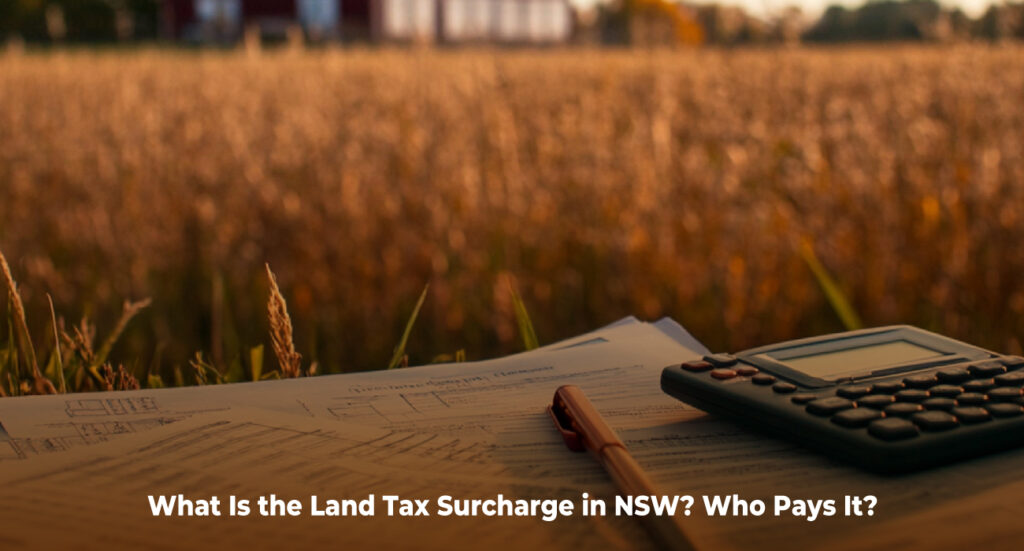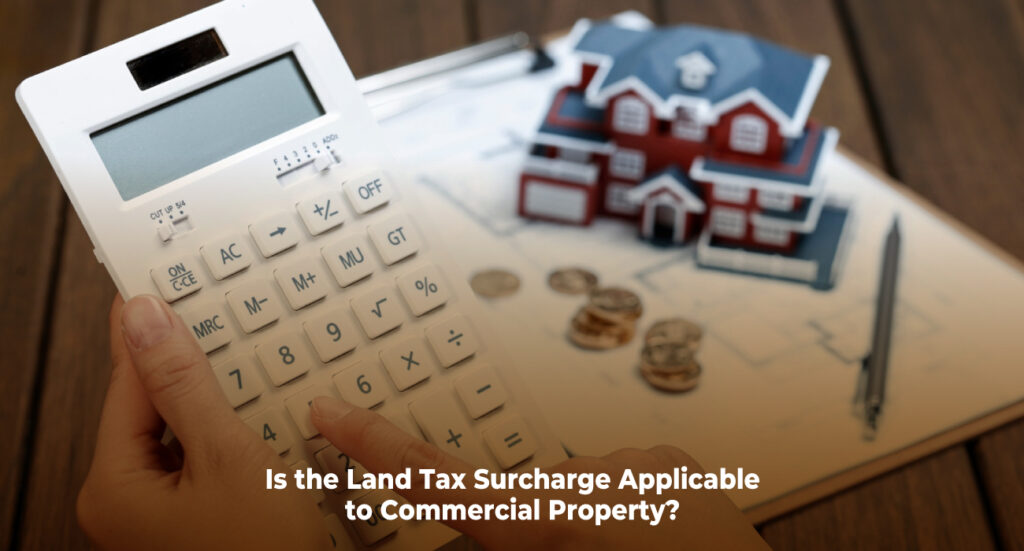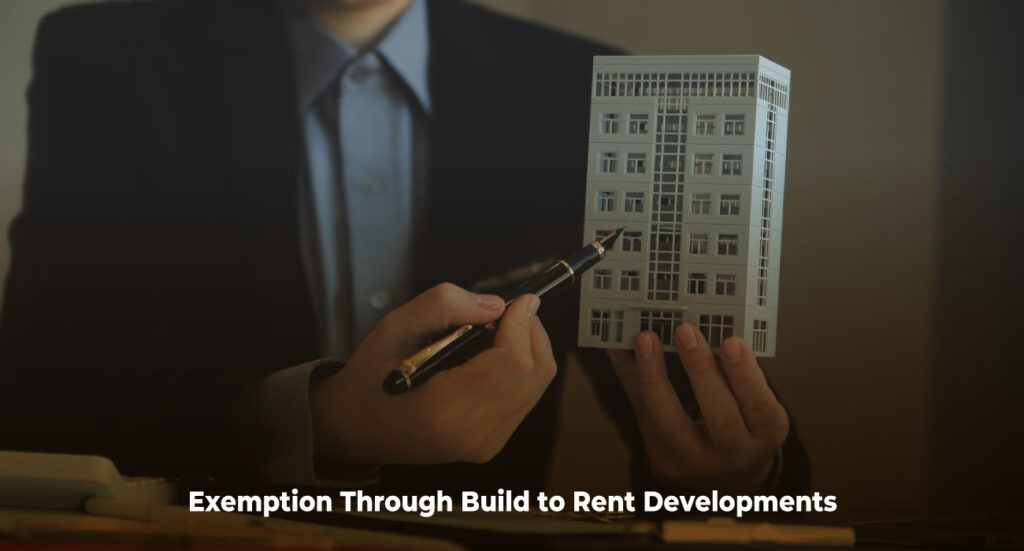How Do Foreign Residents Reduce Land Tax Surcharge in NSW Australia?
In recent years, most Australian state governments have introduced a land tax surcharge on foreign property owners. The stated aim is to encourage local ownership and generate additional revenue for housing and infrastructure. In New South Wales (NSW), the surcharge is particularly significant — 5% from 2025. That’s on top of standard land tax, making it one of the most substantial additional costs for foreign owners.
At Investax, we often hear from foreign investors who ask the same question: “Is there any way to avoid this surcharge?” The reality is that if you already own property in your individual foreign name, there’s little you can do to eliminate the surcharge. But if you plan strategically before purchasing property, there are legitimate structures and strategies that can help you reduce or avoid it.
This article explains what the land tax surcharge is, how it applies, and practical steps foreign residents can consider minimising exposure.

What Is the Land Tax Surcharge in NSW? Who Pays It?
According to the NSW Revenue website, land tax is an annual tax levied on the unimproved value of land you own above the threshold ($1,075,000 for 2025). On top of the normal rates, a foreign owner must also pay a land tax surcharge.
A foreign person is broadly defined under the Foreign Acquisitions and Takeovers Act 1975 (Cth) and includes:
- Individuals who are not Australian citizens or permanent residents
- Permanent residents who have not lived in Australia for at least 200 days in the 12 months before 31 December (the land tax assessment date)
- Corporations where foreign persons hold substantial interests
- Trustees of trusts that have foreign beneficiaries
From 2025, the land tax surcharge is 5% of the taxable value of the land in NSW. This applies whether the property is your main residence, an investment, or vacant land. The surcharge is payable in addition to ordinary land tax — it’s not a replacement.
The key takeaway: if you own property in NSW as a foreign person, you are automatically liable for this surcharge unless your ownership structure excludes you from the definition of “foreign person.”

Is the Land Tax Surcharge Applicable to Commercial Property?
A common misconception is that the surcharge applies to all property types. In fact, the surcharge only applies to residential land.
That means if you invest in a commercial property — for example, a warehouse on a large block of land, an office building, or a retail shop — the land tax surcharge does not apply. Commercial property has different dynamics:
- Long-term leases are common (5–10 years or more)
- High rental yields are often achieved relative to residential properties
- Capital growth tends to be steadier over time
For foreign investors, this makes commercial property an attractive alternative to residential holdings, especially in markets like Sydney where land tax surcharges can significantly erode net returns.

Exemption Through Build-to-Rent Developments
Another important way to avoid the surcharge is through the Build-to-Rent (BTR) exemption.
According to Revenue NSW, Australian-based corporations that develop new BTR housing projects may be exempt from surcharge land tax, provided they meet certain requirements. This policy aims to encourage large-scale, professionally managed rental housing in NSW.
What Does the BTR Exemption Involve?
- 50% Land Tax Concession – For qualifying BTR properties, the unimproved land value is reduced by 50% when calculating land tax.
- Surcharge Exemption or Refund – If the property qualifies as an approved BTR development, the owning Australian corporation may be eligible for a full exemption or refund of surcharge land tax, from 2020 to 2039.
Key Conditions for Eligibility
- Minimum scale – The development must include at least 50 self-contained dwellings or reach this threshold with extensions on adjoining parcels.
- Employment requirements – At least 10% of construction labour hours must be worked by groups such as apprentices, upskilled workers, Aboriginal job seekers, or trainees.
- Operation rules – The property must operate as a BTR development under Treasurer-approved guidelines, remain in unified ownership, and have on-site management for tenants.
- Time-limited benefits – Exemptions apply for properties owned on 31 December each year, beginning in 2020 and ending in 2039. However, if the property is subdivided or ownership divided within 15 years, exemptions may be revoked and clawed back.
For large-scale developers and foreign investors willing to partner through an Australian corporation, this exemption provides a pathway to significantly reduce or remove surcharge liability.

Australian-Based Developers Exemption
Foreign investors who operate through an Australian-incorporated company may be eligible for what’s called the Australian-Based Developers Exemption. This exemption recognises that developers contribute to the supply of new housing and are therefore treated differently from foreign owners holding property purely for investment.
Under this exemption, a company that is incorporated in Australia under the Corporations Act 2001 — even if it is classed as a “foreign person” — can apply to be exempt from surcharge land tax, or in some cases receive a full refund. To qualify, the company must be actively developing the land by building new homes or subdividing and selling residential lots. Importantly, the land must be used for development purposes, not just passive investment.
Approval is not automatic. The company must apply to the Chief Commissioner of State Revenue, who considers factors such as whether the developer has Foreign Investment Review Board (FIRB) approval, whether the project aligns with the government’s housing objectives, and whether the developer meets ongoing compliance requirements. In some cases, developers may also obtain a conditional pre-approval before commencing their projects, providing certainty for large-scale developments.
What’s Next?
You may be wondering why we haven’t included the Principal Place of Residence (PPOR) exemption in this article. That exemption is more relevant for permanent residents or visa holders planning to settle in Australia and make the property their home. Since this article is written for foreign property investors who generally hold property for investment purposes rather than residency, we’ve focused on strategies that apply directly to them.
The surcharge land tax can be a major financial burden for foreign investors, especially with NSW increasing the rate to 5% from 2025. To put this into perspective, if you own a $5 million residential property in Sydney, you could be facing a surcharge bill of $250,000 every year — on top of your standard land tax obligations. That kind of cost can wipe out rental income and seriously undermine your investment returns.
At Investax, we specialise in guiding foreign residents and property investors through these complex rules. Our role is to help you protect your wealth, avoid costly mistakes, and maximise after-tax returns through proactive structuring and tax planning. Contact Investax today to discuss your property structure and make sure you don’t pay unnecessary surcharges.
General Advice Warning
The material on this page and on this website has been prepared for general information purposes only and not as specific advice to any particular person. Any advice contained on this page and on this website is General Advice and does not take into account any person’s particular investment objectives, financial situation and particular needs.
Before making an investment decision based on this advice you should consider, with or without the assistance of a securities adviser, whether it is appropriate to your particular investment needs, objectives and financial circumstances. In addition, the examples provided on this page and on this website are for illustrative purposes only.Although every effort has been made to verify the accuracy of the information contained on this page and on our website, Investax Group, its officers, representatives, employees and agents disclaim all liability [except for any liability which by law cannot be excluded), for any error, inaccuracy in, or omission from the information contained in this website or any loss or damage suffered by any person directly or indirectly through relying on this information.





